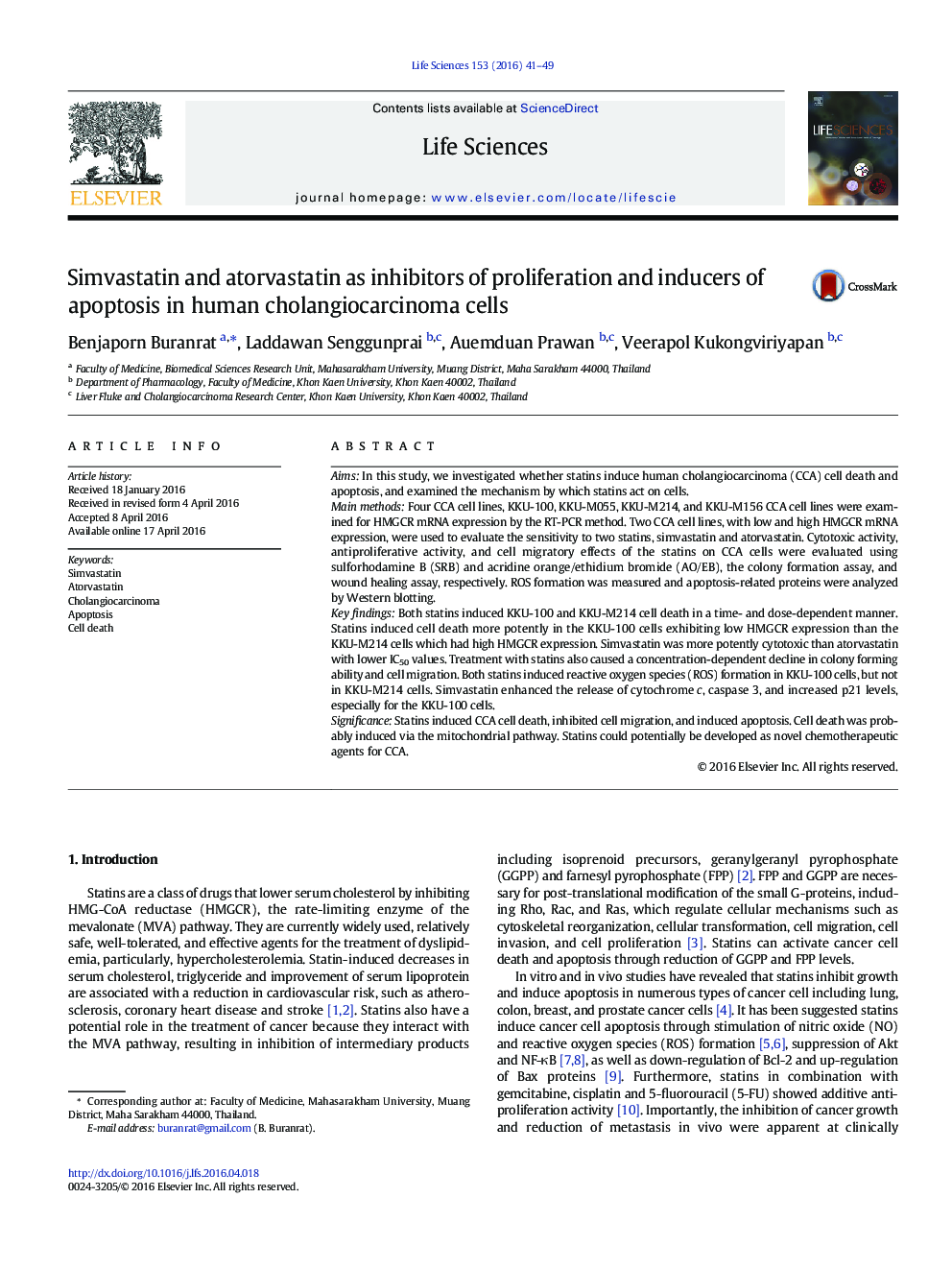| Article ID | Journal | Published Year | Pages | File Type |
|---|---|---|---|---|
| 2550554 | Life Sciences | 2016 | 9 Pages |
AimsIn this study, we investigated whether statins induce human cholangiocarcinoma (CCA) cell death and apoptosis, and examined the mechanism by which statins act on cells.Main methodsFour CCA cell lines, KKU-100, KKU-M055, KKU-M214, and KKU-M156 CCA cell lines were examined for HMGCR mRNA expression by the RT-PCR method. Two CCA cell lines, with low and high HMGCR mRNA expression, were used to evaluate the sensitivity to two statins, simvastatin and atorvastatin. Cytotoxic activity, antiproliferative activity, and cell migratory effects of the statins on CCA cells were evaluated using sulforhodamine B (SRB) and acridine orange/ethidium bromide (AO/EB), the colony formation assay, and wound healing assay, respectively. ROS formation was measured and apoptosis-related proteins were analyzed by Western blotting.Key findingsBoth statins induced KKU-100 and KKU-M214 cell death in a time- and dose-dependent manner. Statins induced cell death more potently in the KKU-100 cells exhibiting low HMGCR expression than the KKU-M214 cells which had high HMGCR expression. Simvastatin was more potently cytotoxic than atorvastatin with lower IC50 values. Treatment with statins also caused a concentration-dependent decline in colony forming ability and cell migration. Both statins induced reactive oxygen species (ROS) formation in KKU-100 cells, but not in KKU-M214 cells. Simvastatin enhanced the release of cytochrome c, caspase 3, and increased p21 levels, especially for the KKU-100 cells.SignificanceStatins induced CCA cell death, inhibited cell migration, and induced apoptosis. Cell death was probably induced via the mitochondrial pathway. Statins could potentially be developed as novel chemotherapeutic agents for CCA.
